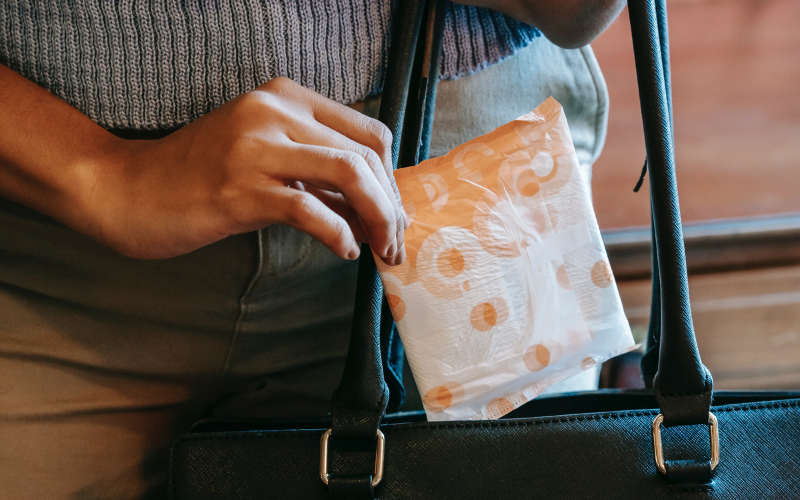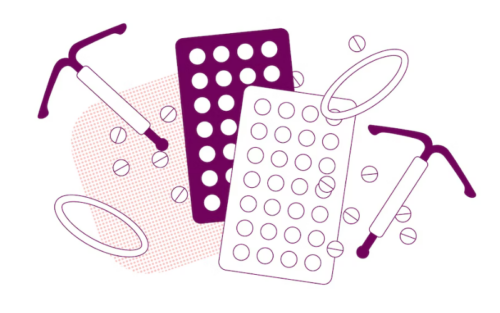
Teaching about menstruation and menstrual well being is part of the statutory Health Education guidance from Ofsted and it should be easy to slot in within a well-planned PSHE or RSHE curriculum alongside other topics such as puberty. Menstruation can be a scary and confusing time for many people and so it’s important we prepare young people with what to expect and how they can manage their periods. Whilst most people with vaginas get their first period at the age of 12, some can be as early as 9 so it’s important we start these conversations early.
5 key things to remember when teaching about menstruation, periods and menstrual wellbeing
Here are our top 5 considerations when teaching about menstruation and menstrual well-being.
Periods are normal!
As something that typically occurs every month for millions of people around the world, we are unfortunately still battling against the menstrual taboo that still exists for many. It is therefore important that we are encouraging positive social norms and empowering people to feel confident about their bodies and managing their monthly cycles.
One step to doing this is to use inclusive language. Inclusive language when talking about menstruation helps us to dismantle the stigma and shame that many people feel about having periods. It also allows all people who require it access to essential information and resources.
Consider the language that is used today to discuss periods and period products. The terms ‘feminine hygiene products’ and ‘sanitary products’ are ingrained into our language around menstruation but are there better alternatives? This language implies that periods are dirty when they are a natural bodily function. Similarly, it’s important to avoid using euphemisms when teaching this topic. Phrases such as ‘that time of the month’ perpetuate a stigma surrounding periods that give the message that we shouldn’t be discussing something that is totally normal.
Let’s make sure we include all people who experience periods by using inclusive language. The charity Bloody Good Period, who fight against period poverty, explain that it’s harmful to refer solely to females when talking about menstruation.
Firstly, everyone needs to know about periods, not just women and girls. Secondly, some people who have periods don’t identify as women, including trans men and non-binary folk. Everyone deserves to be, and should be, included in the conversation around periods.
Bloody Good Period
They also emphasise the importance of ‘straightforward period talk’ to reduce the stigma around periods, and say we should refer to period products as what they are and use the correct terminology.
Routines and managing monthly cycles
There is a common misconception among young people that periods affect your day to day lives. To the extent that you can’t do the things you would otherwise choose to do. It’s important to acknowledge that periods are not always comfortable and that some people may need to seek support from their GP for unusual amounts of bleeding or pain. However for most, periods are manageable through different period products and over the counter painkillers. Explore different period products with your students so that they understand the variety of products available that can support them to go about their daily lives as normal. Many young people have concerns about exercise and swimming in particular. Speak openly about the pros and cons of different products and encourage them to find what works for them.
It’s proven that exercise is a good way to help prevent or relieve menstrual cramps and most exercises are possible whilst menstruating with the right period product. It’s equally important to maintain a good hygiene routine to ensure our bodies are free from infection. Teaching our students to wash their hands before and after handling period products and how to properly dispose of them is crucial in supporting them to build healthy routines around their menstrual cycle.
Everyone experiences periods differently
Periods vary from person to person in terms of the length of the cycle, how heavy they are and also the amount of pain that is experienced. People with vaginas can have irregular cycles in their first few years of menstruation so it’s helpful if we teach our students to get to know their own body and what is normal for them so that they can look out for any changes. By educating students on tracking their menstrual cycle, they should be able to fairly accurately predict when they are due a period and this can relieve some anxiety around not being prepared for their period and being caught short.
Around the time that people have their first period, they are also experiencing many other changes to their body which can feel overwhelming. Therefore we must make sure our students are aware of these changes and how things like hormones can affect their moods. Hormonal changes during puberty affects all genders so make sure to go through what to expect for everyone.
Period poverty
When teaching about menstruation it’s important we acknowledge that, alongside the usual stigma that people face about periods, there are some groups of people who are unfairly disadvantaged during their period. This can be either due to the culture of embarrassment and shame that exists in their world, or because period products are not free and accessible meaning some can’t afford them.
Period Poverty UK is one of the many charities that supports women in crisis by providing them with period products. They organise fundraisers and donations to be able to continue their work towards ending period poverty.
The charity Bloody Good Period is another great place to start in learning more about period poverty, how we can speak to our students about this and what we can do to support change. Reni Eddo-Lodge describes Bloody Good Period as striking ‘at the intersection of feminism, migration, race and injustice’ which is a great summary of how period poverty can affect so many in so many different ways.
Signposting/support
Finally, let’s give our students the know-how to manage their menstrual well-being and to seek support if they need it. In January 2020, the Period Product Scheme was introduced to schools and colleges across the UK to provide free period products for their students. Most schools now have their own system to allow students to ask for these products discreetly. If this is in place in your school, make sure it is well sign-posted for your students and they know how they can access this support.
Supermarkets have also started to support the fight against period poverty. In 2021, Morrisons introduced an initiative called ‘Package for Sandy’ to tackle period poverty. It is now available at 497 stores. This can be accessed via the customer service desk by asking for a ‘package for Sandy’ or a ‘period product pack’. In 2023, Tesco introduced a similar scheme to support with period poverty. Let students know to go to the customer service desk and ask for a ‘White Envelope’. Sanitary products will be given with no questions asked.
Encourage students to speak to their parents/carers or their local GP if they have any specific concerns about their periods and let them know who they can speak to in school if they need any support.

